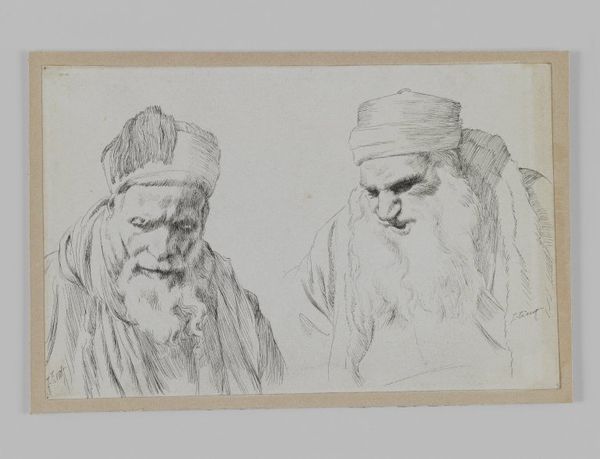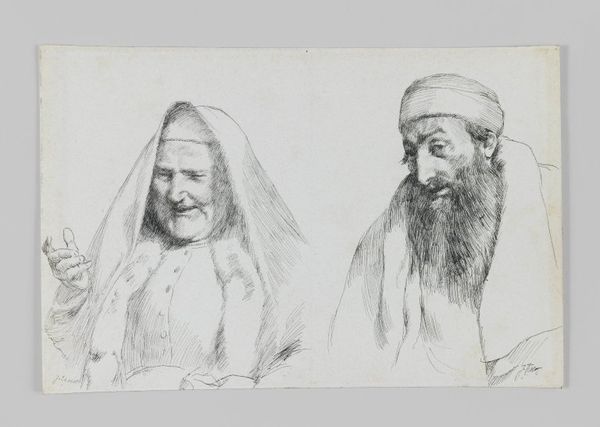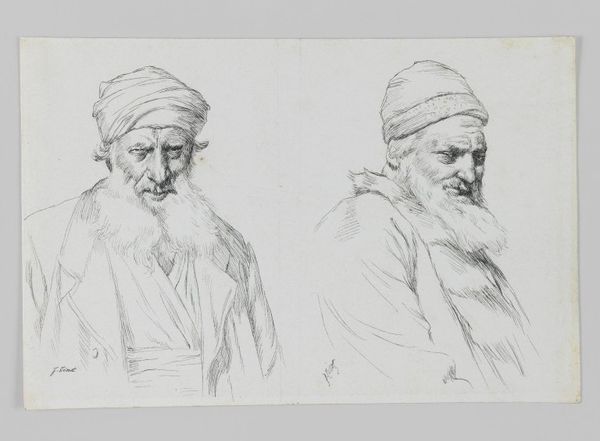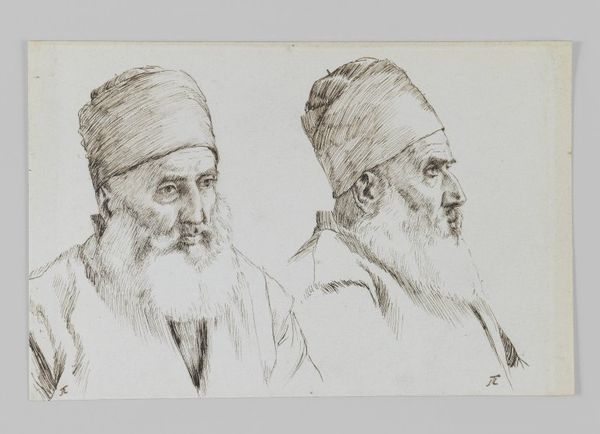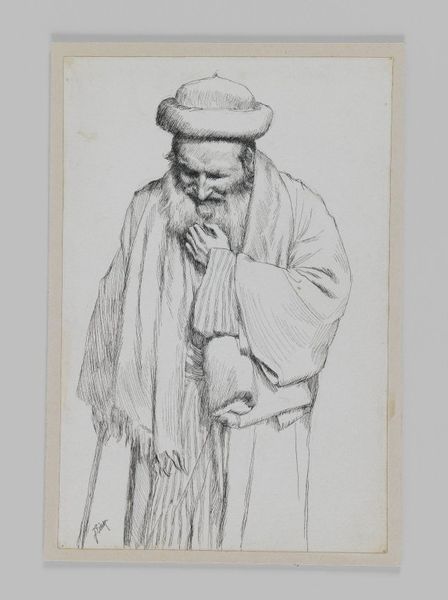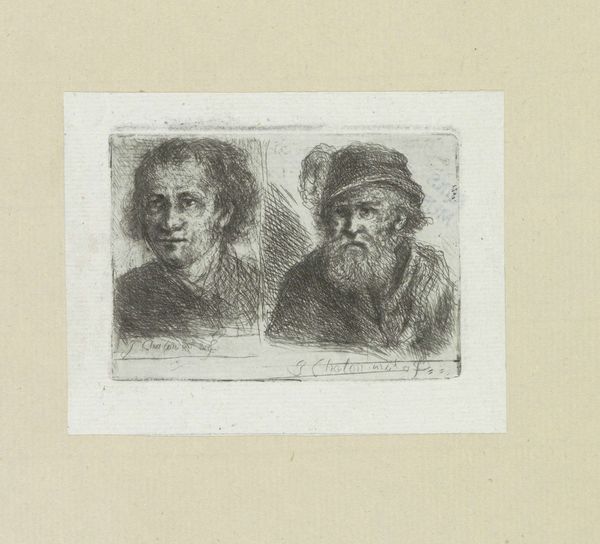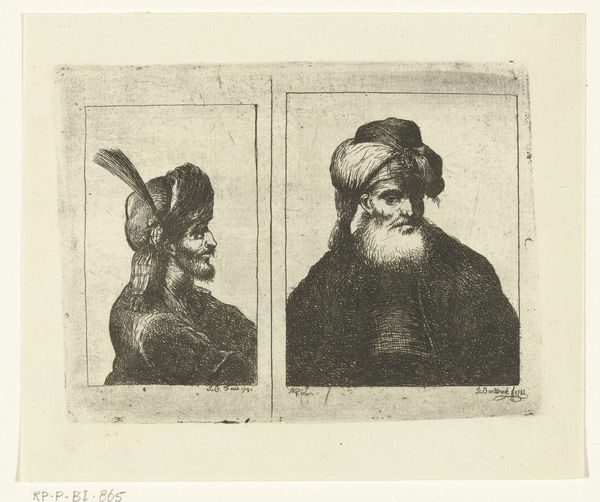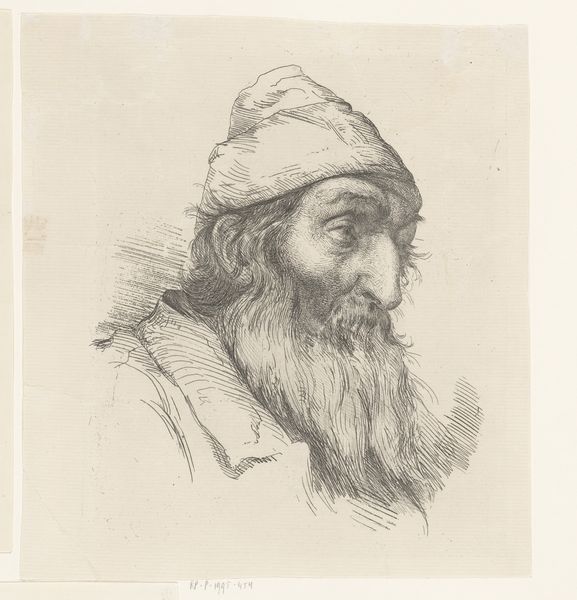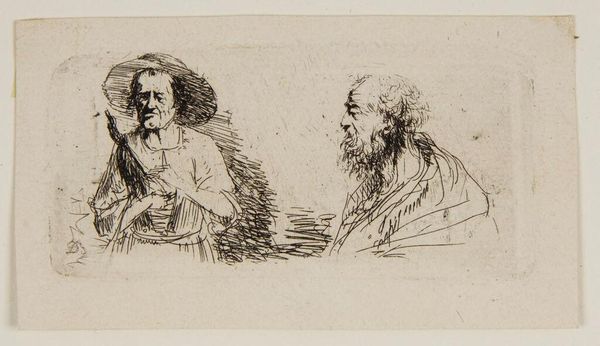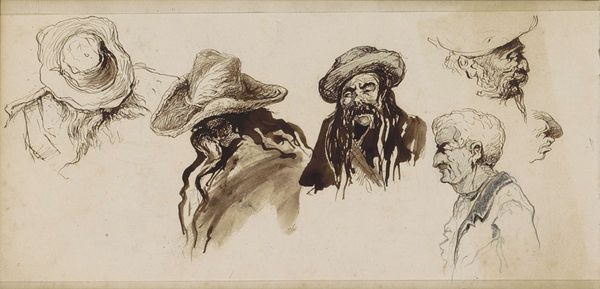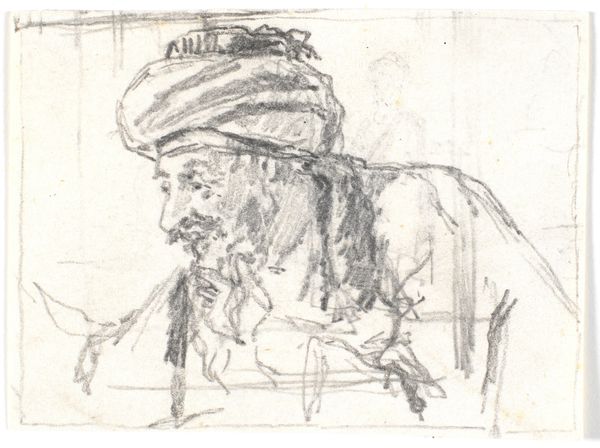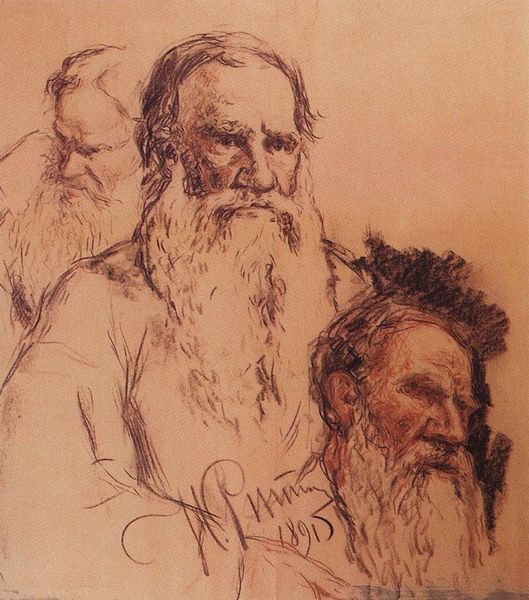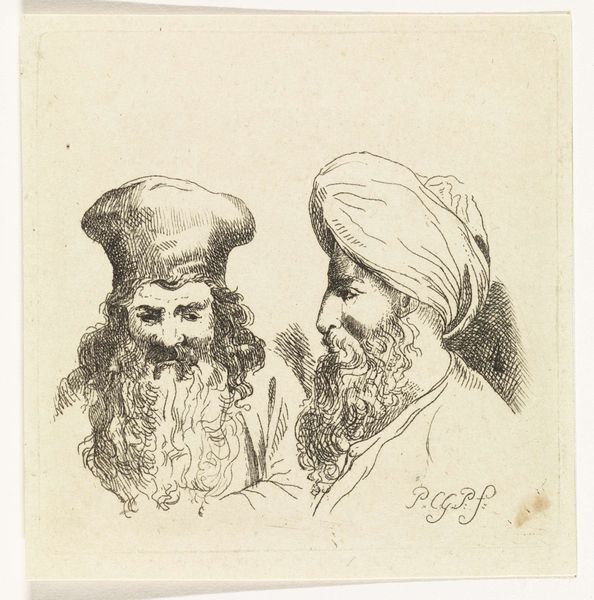
drawing, pencil
#
portrait
#
drawing
#
pencil sketch
#
charcoal drawing
#
pencil drawing
#
sketch
#
pencil
#
line
#
genre-painting
#
academic-art
#
realism
Dimensions: 12.1 x 17.8 cm
Copyright: Public domain
Editor: We’re looking at James Tissot's "Type of Jew," a pencil drawing from 1889 currently housed at the Brooklyn Museum. It's a rather stark double portrait. I am immediately struck by the subjects' intense gazes. What do you see in this piece? Curator: It's crucial to consider the social and historical context. The late 19th century was rife with burgeoning nationalism and, unfortunately, increasing antisemitism. Tissot, although French, spent significant time in England where such prejudices were also prevalent. Consider the title itself. It essentializes a diverse group of people. How might this image have been received and used at the time? Editor: So, you are saying this drawing may perpetuate stereotypes rather than simply documenting a type of person? Curator: Exactly. Think about the institutional framework, too. Museums often collected and displayed such "types," reinforcing societal biases. Look closely at their expressions and clothing; how might those details have been interpreted, or perhaps even intentionally portrayed, to align with popular prejudices? It raises uncomfortable questions about the role of art in shaping public perception. Editor: That's unsettling. I hadn't considered how the very act of portraying someone as a "type" can be loaded with political implications. Curator: Indeed. It challenges us to critically examine not just the artwork, but also the motivations behind its creation and its potential impact on its viewers, both then and now. Has this shifted your perspective? Editor: Definitely. It’s a potent reminder of how art can be entangled with complex social issues. I'll definitely be more mindful of these contexts in my future studies.
Comments
No comments
Be the first to comment and join the conversation on the ultimate creative platform.
